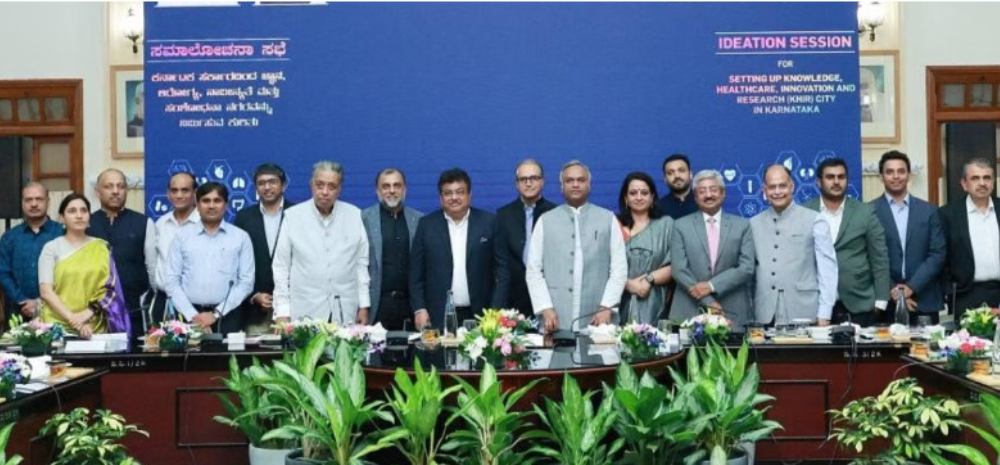The Karnataka government has launched the creation of the Knowledge, Healthcare, Innovation, and Research (KHIR) City near Bengaluru, with the goal of attracting a Rs 40,000 crore investment and generating 80,000 jobs in the healthcare, innovation, and knowledge sectors. The extensive 2,000-acre project is being strategically developed in phases within a 60 km radius from Bengaluru.

Unveiling the Transformative Vision: KHIR City’s Potential and Karnataka’s Strengths in Innovation and Industry
During the Ideation Session, Shri M B Patil, the minister for large and medium industries and infrastructure development, emphasized the transformative potential of KHIR City. He stressed the importance of collaboration between the government, medical institutions, private enterprises, and academia to establish a center of excellence. The initiative not only concentrates on job creation and attracting investments but also aims to significantly contribute to the state’s GDP, setting a target of at least Rs 1 lakh crore. Valuable insights were shared during the session by industry leaders such as Kris Gopalakrishnan and Dr. Devi Prasad Shetty.
Karnataka’s existing strengths, including a skilled talent pool and a robust innovation ecosystem, position it favorably for the development of KHIR City. Bengaluru’s strategic location, hosting over 60% of India’s biotech companies and 350 medical device manufacturers, is poised to enhance its global standing.
Strategic Vision: KHIR City as a Hub for Innovation and Medical Tourism in Karnataka
Shri Priyank Kharge, the minister for IT/BT, and S&T, highlighted KHIR City as a unique knowledge center that brings together innovators from various sectors. The government is planning to formulate a dedicated policy to boost medical tourism.
Emphasizing the importance of swift implementation, Kris Gopalakrishnan recommended the development of essential infrastructure such as a metro station before the full realization of KHIR City. Drawing inspiration from global models like Singapore’s Biopolis Cluster and Japan’s Kobe Biomedical Innovation Cluster, the project encourages flexible participation formats for private companies, ensuring a balanced and sustainable development model. Industry representatives underscored the significance of skill development in the state, with a specific focus on life sciences.












